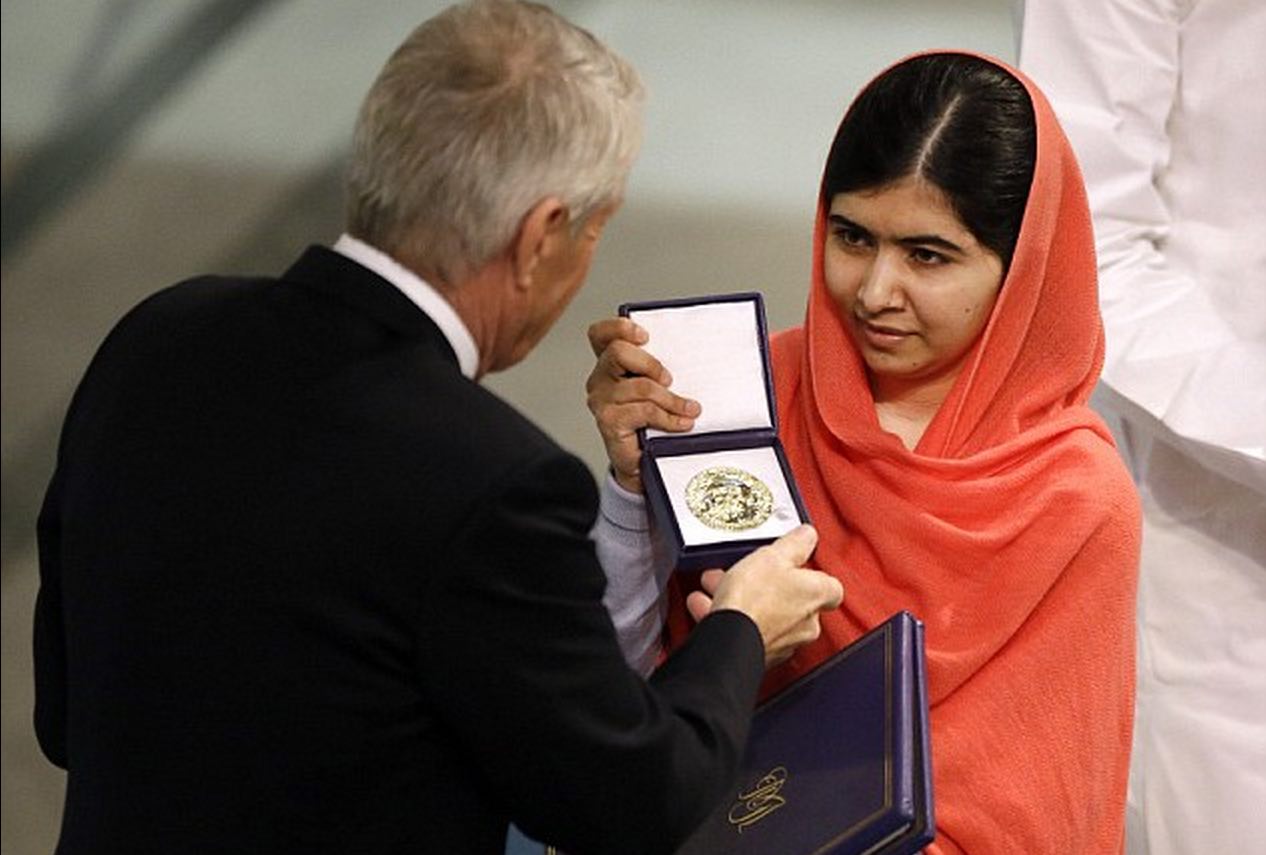Pakistani child education activist Malala Yousufzai and the Indian children`s rights activist Kailash Satyarthi have won the Nobel Peace Prize for their struggle for the right of all children to education and against the suppression of children and young people.
“Despite her youth, Malala Yousafzay has already fought for several years for the right of girls to education, and has shown by example that children and young people, too, can contribute to improving their own situations. This she has done under the most dangerous circumstances. Through her heroic struggle she has become a leading spokesperson for girls rights to education,”the Norwegian Nobel Committee issues a statement on its website.
The committee further stated that “showing great personal courage, Kailash Satyarthi, maintaining Gandhi s tradition, has headed various forms of protests and demonstrations, all peaceful, focusing on the grave exploitation of children for financial gain. He has also contributed to the development of important international conventions on children s rights.”
With the prize, Malala Yousafzai, 17, becomes the youngest Nobel Prize winner, eclipsing Australian-born British scientist Lawrence Bragg, who was 25 when he shared the Physics Prize with his father in 1915.
She was attacked in 2012 on a school bus in the Swat Valley in northwest Pakistan by masked gunmen as a punishment for a blog that she started writing for the BBC s Urdu service as an 11-year-old to campaign against the Taliban s efforts to deny women an education.
Unable to return to Pakistan after her recovery, Yousafzai moved to Britain, setting up the Malala Fund and supporting local education advocacy groups with a focus on Pakistan, Nigeria, Jordan, Syria and Kenya.
The prize, worth about US$1.1 million (S$1.4 million), will be presented in Oslo on Dec 10, the anniversary of the death of Swedish industrialist Alfred Nobel, who founded the award in his 1895 will. (AFP)






